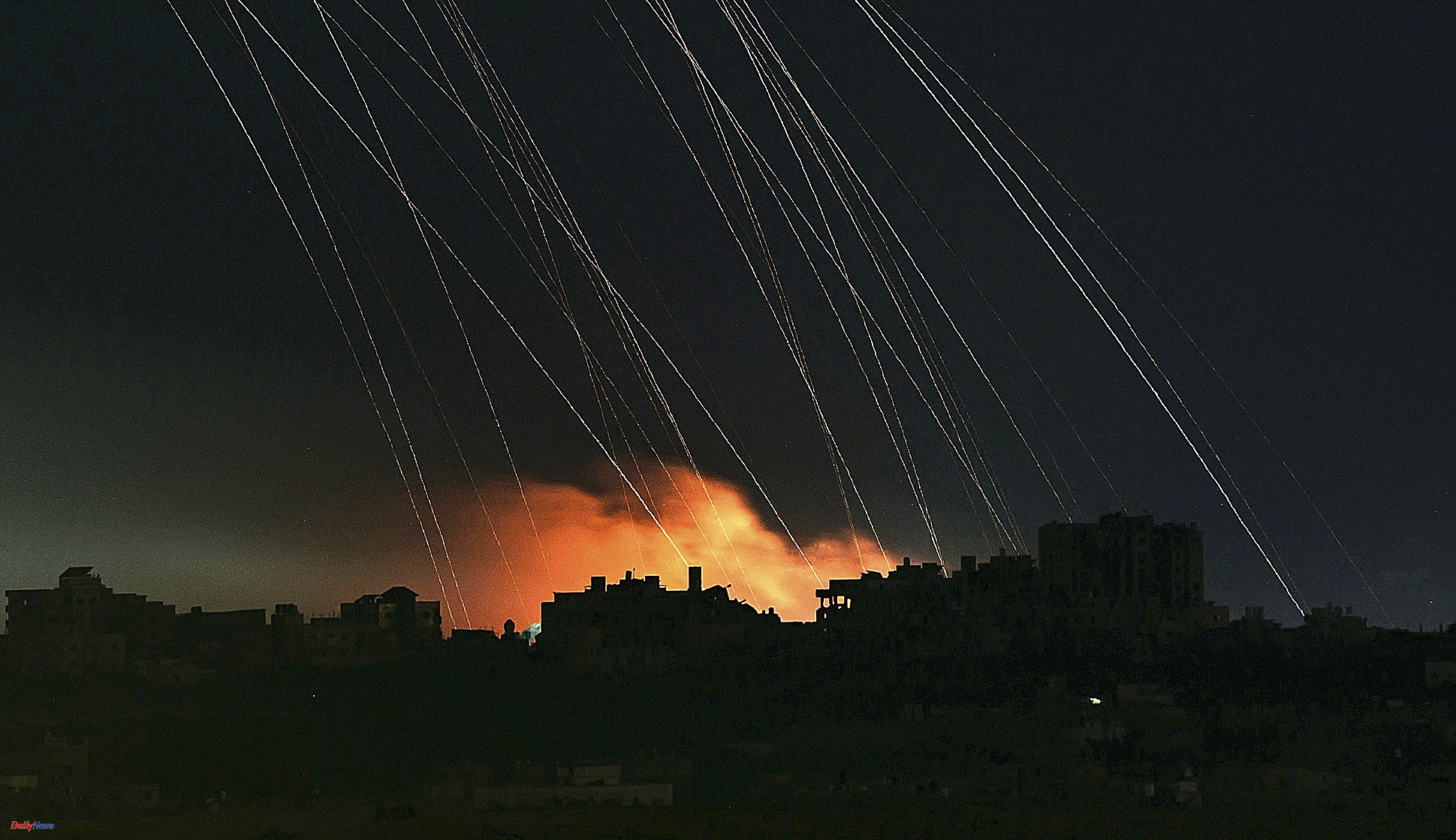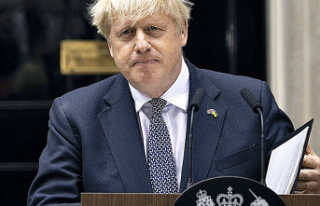While the mediation for a new ceasefire suffered a serious blow this Saturday, the Israeli Air Force hit the southern Gaza Strip in its offensive against Hamas in what could be the beginning of preparation for a ground operation in Khan Younis .
After failing to extend this Friday the truce that began a week earlier, the efforts of Egypt, Qatar and the United States have entered a complex labyrinth due to the discrepancies between Israel and the fundamentalist group regarding the new lists of kidnapped people to be released.
"As a result of the stalemate in the negotiations and following the instructions of Prime Minister Benjamin Netanyahu, the head of Mossad, David Barnea, ordered his team in Doha to return to Israel," said the statement from the Israeli secret service. After thanking the head of the CIA, the minister in charge of Intelligence in Egypt and the Qatari prime minister for their mediation that achieved the release of 84 Israeli children and women and 24 foreigners in the last week, Israel accused Hamas of " to have failed to fulfill their part of the agreement which included the release of all children and women according to a list sent to and approved by Hamas.
Yahia Sinwar's group accuses Israel of failing to extend the pause and denounces that "it had already decided to resume the war." One of the Islamist leaders, Saleh Al Arouri, warned in Al Jazeera that the "Zionist prisoners" will not be released without the release of Palestinian prisoners and a definitive ceasefire. However, like the truce itself, the blockade to resume it is not definitive either.
At the moment, signs are accumulating for an upcoming military incursion into the south of the Gaza Strip: intense air strikes, approved operational plans, a call for evacuation to more southern areas and a warning from the US that the offensive to end Hamas will not be carried out. It cannot and should not be as long as Israel wants.
The resumption of the Israeli offensive has caused the death of almost 200 people, according to the Ministry of Health of the Hamas Government. Many in Khan Younis are displaced from northern Gaza as a result of the offensive. Like Yamen, who asks: "Where will I go after Deir Al-Balah, after Khan Yunis? I don't know where I will take my wife and my six children." Also telling Reuters, Palestinian Samira tells that Friday night was "horror" due to the bombings. "It was one of the worst nights we spent in the last six weeks since we arrived here. We are very afraid of them entering Khan Yunis," she admitted.
The unrest in Gaza towards Israel is widespread due to the number of deaths and houses destroyed in the massive retaliation after the Hamas attacks on October 7. At the same time, more and more Gazans dare to publicly accuse Hamas and the countries that support it for the dramatic situation. After denouncing "a massacre against innocent civilians and children" in an interview with Al Jazeera, a Palestinian was interrupted when he added: "God will settle accounts with Qatar and Turkey!" This is not the first time that the Qatari network has silenced live voices against the group that has controlled the Palestinian enclave since 2007.
"We are acting in places where we had not been before. We are going to completely put an end to Hamas," declared Defense Minister Yoav Gallant, after the Army reported that it had attacked "400 terrorist targets" and denounced the presence with images. of rockets and Grad missiles hidden under boxes from UNRWA (the UN agency for Palestinian refugees) in a residence.
International agencies in Gaza demand a ceasefire while denouncing the decrease in humanitarian aid compared to the 200 trucks of food, water and medicine, four of fuel and another four of gas that entered daily during the truce. After not doing so on Friday, assistance returned this Saturday with 50 assistance trucks and another two with fuel.
It was a demand from the US, which also asks Israel that the offensive in the South be carried out differently from that in the North, with more selective attacks and with fewer displaced people. Hence perhaps the Army is not asking these days for a generalized transfer as it did before and during the land incursion into the north of the Strip but rather with maps indicating districts to be evacuated in an area where 1.7 million of the 2.2 million live. million inhabitants of the Strip.
Regarding a new ceasefire, Israel demands from Hamas the last batch of the agreed category of kidnapped people (16 women and children). This fact and the projectiles minutes before and after 7:00 on Friday morning led Israel to resume the attacks. Hamas, which accused Israel of not accepting its lists with the aim of resuming "aggressions", asks to move on to the next phase and negotiate the release of those over 65 years of age (it is believed that there are 13).
Faced with growing internal pressure to promote new agreements that return more citizens home - reflected in a massive demonstration this Saturday afternoon in Tel Aviv - Gallant is convinced that military pressure led and will lead Hamas to relax its positions on the kidnapped people.
Having already achieved "victory" on the first day of the war by surprising, killing and terrorizing the Israelis in his attack 57 days ago, Sinwar knows that only a truce can prevent or, at least postpone, the dismantling of his group to armed and control level of Gaza. The key to this is the one that locks the 137 kidnapped people.
Sinwar is aware that this issue is very sensitive in Israeli society, which during the week of the truce caused two theoretically opposite effects. On the one hand, the release of hostages increased the pressure to continue the ceasefire until everyone returned despite the fact that it was psychological torture for their families to wait every night for the Hamas lists. On the other hand, the very harsh testimonies of children and women about the psychological and physical abuse suffered and the hostile attitude of the Gazans reinforced the desire to put an end to Hamas. "If there is no calm (in Israel), then all our friends who were brutally murdered will have gone in vain," young Ziv told Channel 12, who survived the attack in which her nephew and his partner were murdered while her boyfriend it was kidnapped.












